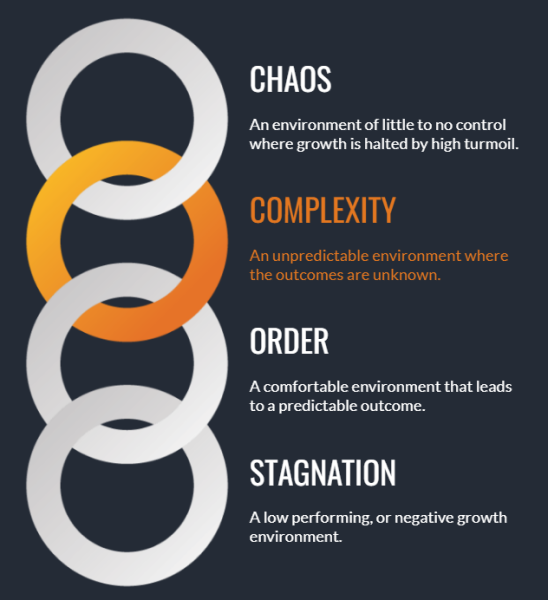
Pixelbliss/Shutterstock
As the saying goes, all good things must come to an end, and that includes jobs. More commonly, we hear about job searches that are fueled by unhappiness, misalignment with departmental/institutional values, etc., but the truth is that not every job change happens in a blaze of fury.
On the contrary, for those who are comfortable and successful in their current position, deciding to job search — or apply to a position they have been recommended for — can be difficult. We don’t talk about transitions like these enough, perhaps because they don’t have the same sense of urgency as transitions from a poor job fit or toxic work environment.
Yet, these transitions are inevitable as a career takes its natural course, and we must be prepared for them. So, how do you know when to close one chapter and start the next? And once you’ve decided that it is time to move on, how do you reconcile with saying goodbye to a position you’ve enjoyed and been successful in?
Is It Really Time to Go?
Change is never easy, especially when you’ve succeeded in your current position, but success alone may not be a reason to stay. “We should not let our gifts and talents confine us to how we define ourselves and our future,” said Dr. Ed Burger on a 2019 episode of KUT’s podcast “Higher Ed” where he discussed his departure from his role as president of Southwestern University. “If there is something more that we want to do, I don’t think we should use the fact that we are successful at something we’re currently doing as an impediment to not go off; trail blaze; take the risk; effectively fail; and do something else.”
From time to time, it can be helpful to ask yourself: “Yes, I am successful, but am I happy?” It’s easy to conflate the two or think that one follows the other.
“Success and fulfillment don’t always go hand in hand,” warned Hallie Crawford of createyourcareerpath.com. “You can be successful at a job but not truly enjoy it on a deeper level. You can be successful but be in the wrong work environment for you. The key is to be successful in the right overall fit.”
Chances are, if you’re successful, you’re also comfortable in your role, and yet that word is a double-edged sword. Being comfortable likely means that you have built a rapport with your team/department, have good working relationships with your students and superiors and across departments, etc., but it can also indicate you’ve grown stagnate.
“There’s a point at which some leaders need to look for new challenges and turn opportunities over to a next leader,” said Genna Welsh Kasun, associate vice chancellor of marketing and communications at the University of Virginia’s College at Wise. “That leader, in turn, will not only continue the team’s success but tackle some of its challenges you haven’t from a fresh point of view — and advance their life and journey in their leadership and management as a result.”
She warns of the dangers of growing too comfortable in your role.
“We have to be constantly focused on stretching ourselves, our team members, and our organizations to advance higher education overall,” she explained. “Also, we struggle to keep talent in higher education, and moving on so others can move up presents opportunities for other emerging leaders.”

The Growth Rings (photo from Ecsell Institute)
In essence, this is the concept of Growth Rings developed by Bill Eckstrom. “The Growth Rings are a conceptual way to think about the role comfort, challenge, and stretching to our potential plays in our everyday lives,” reads Eckstrom’s website. As you can see from the illustration to the right, there is a range of states we can experience throughout our careers — stagnation, order, complexity, and chaos.
We’ve talked about stagnation already, but “order is knowing that what you do or what is happening in your environment leads to a predictable outcome.” Eckstrom said in a TEDx talk entitled Why Comfort Will Ruin Your Life. “And, in predictability, comfort is found. But comfort is also what makes order so dangerous because science shows that any time you continually do something or even think about something the same way, you will eventually stop growing.”
He advises striving for complexity (an unpredictable environment where the outcomes are unknown) over order “because it’s the only environment where sustained or exponential growth can occur.” In other words, changing jobs (when you’ve grown stagnate or too comfortable) is pushing yourself into complexity and ensuring continued growth — not only for you but for the team you’ve been part of for so long.
Good teams are made up of people with diverse ideas and perspectives. Ultimately, when one person leaves, it may make room for others who can help a team achieve new levels of innovation and creativity.
Navigating the Emotions of a Job Change
Having big emotions about a job change is natural, and so is having reservations. Work takes up a large chunk of our time, so leaving a place of employment is certain to cause some turbulence in our lives.
As you navigate the transition, remember to:
Check your guilt. It’s not uncommon to feel guilty about leaving behind colleagues and students, but keep things in perspective. You can’t put your career on hold for others, and chances are, for your colleagues, your departure will be a “temporary ripple.”
Preserve relationships. Just because your time at an institution ends doesn’t mean your relationship with colleagues has to. Exchange emails, connect on LinkedIn, or make other plans for staying in touch. “When I left Juniata College, I thought this would be so difficult — leaving behind colleagues I adored who genuinely became friends,” Kasun said. “However, I am honored and blessed to say that not only my teammates from marketing and communications but colleagues from across campus have kept in touch.” Similarly, if you want, provide contact information for students to use after you leave. Building these bridges can help to break up the finality of your departure and ease the transition for everyone.
Allow yourself to mourn. What will you miss about your job? What makes you sad about leaving? What were the best parts of this job? Whether it’s your morning encounter with colleagues at the coffee cart or easily swinging by your mentor’s office across the quad, there are things you will miss. It’s okay to acknowledge that. Naming these things and allowing yourself to grieve is a healthy, normal part of the transition.
Job changes are rarely easy, but remember what Eckstrom said in his TEDx talk: “What makes you comfortable can ruin you, and only in a state of discomfort can you continually grow.” Be proud that you have pushed yourself out of your comfort zone, are embracing the unpredictable, and taking the next step in your career journey.

